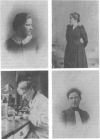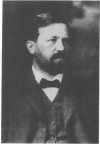Abstract
Born into a Boston Irish family, Marcella Imelda O'Grady was the first woman graduate in biology from MIT (1885) where she came under the influence of two recent PhD graduates of Johns Hopkins University, William Townsend Sedgwick and Edmund Beecher Wilson. She taught science at Bryn Mawr School for girls in Baltimore 1885 to 1887 and was teaching assistant with E B Wilson at Bryn Mawr College for women in Bryn Mawr, Pennsylvania, 1887 to 1889. From 1889 to 1896 she headed the Department of Biology at Vassar College for women in Poughkeepsie, New York. On the recommendation of E B Wilson (who from the first edition in 1896 dedicated his famous book The cell in development and inheritance to Boveri) Marcella went to Würzburg to spend a sabbatical with Boveri. One year later she married Boveri and during the next 18 years until Boveri's untimely death in 1915 she was her husband's close scientific collaborator, especially in his work at the marine zoological stations in Naples and Villefranche, France. She also acquired (from Freiburg) the doctorate she had unsuccessfully attempted to get at Johns Hopkins. Marcella returned to the United States in 1926 and headed the Biology Department at Albertus Magnus College in New Haven. She was there in 1929 when her English translation of her husband's 1914 monograph advancing the chromosome theory of cancer was published. The translation did much to bring that theory to the attention of a wider audience which has thereby been able to rediscover Boveri, despite lack of a reading knowledge of German. Boveri's theory was based on the views that cancer is a cellular problem, cancers originate from a single cell, this cell has an abnormality of its chromosomal constitution, and the chromosomal abnormality which is passed on to all the descendants of the cell of origin is the cause of rapid cell proliferation.
Full text
PDF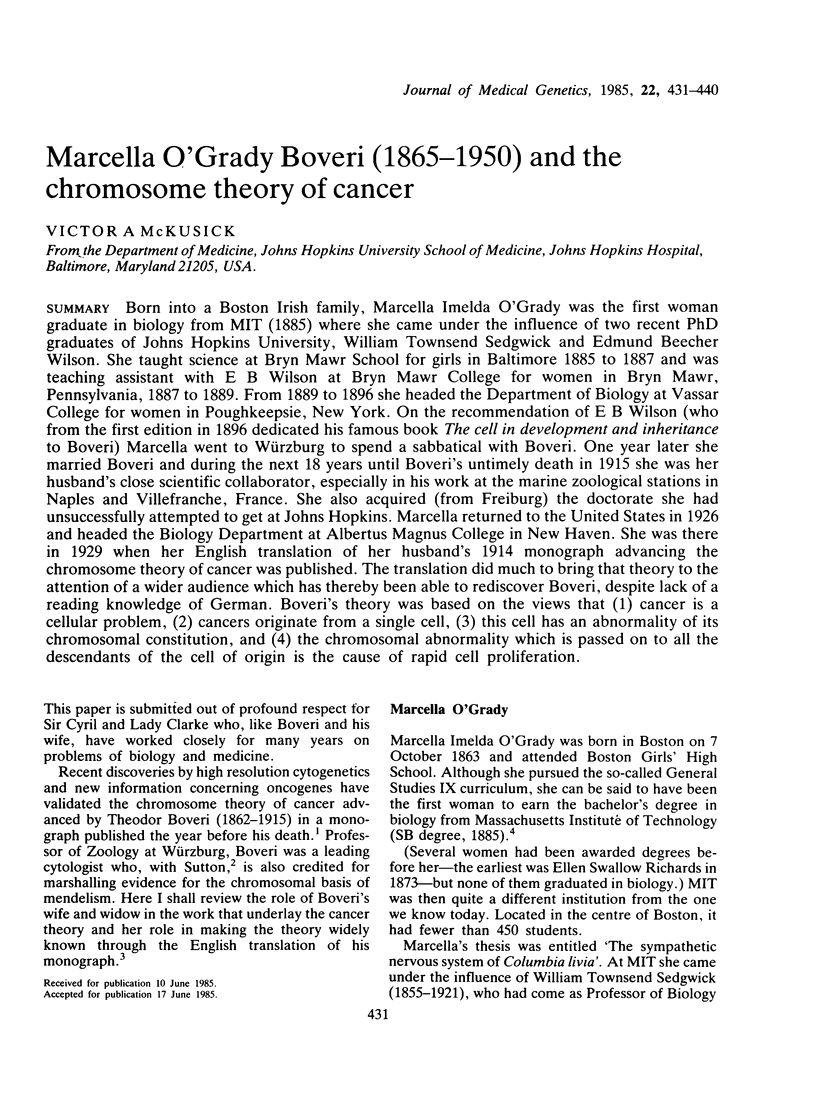
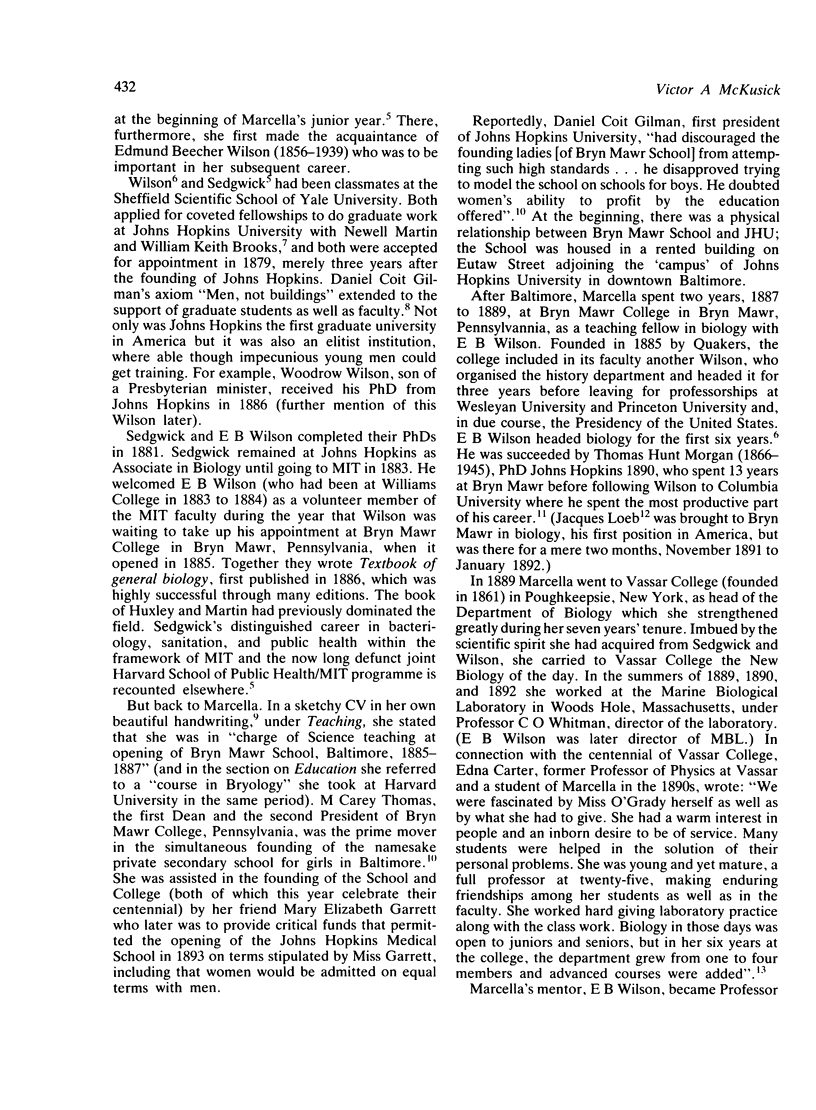
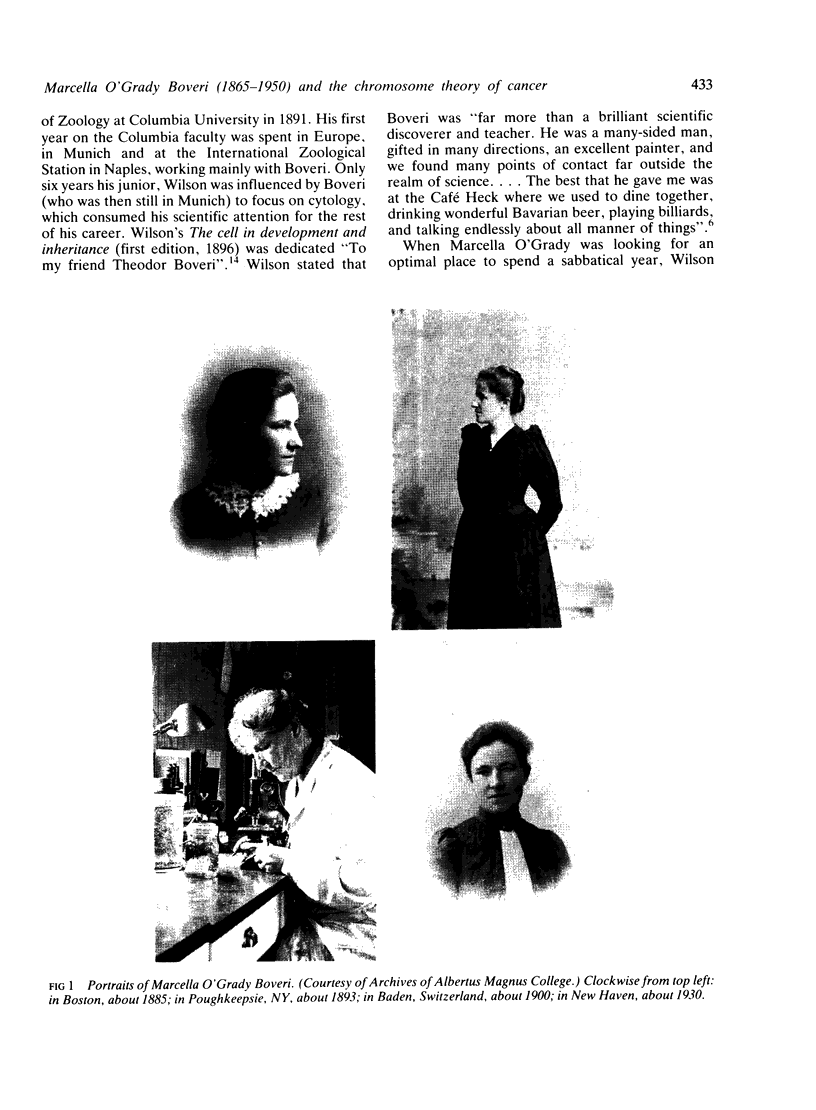
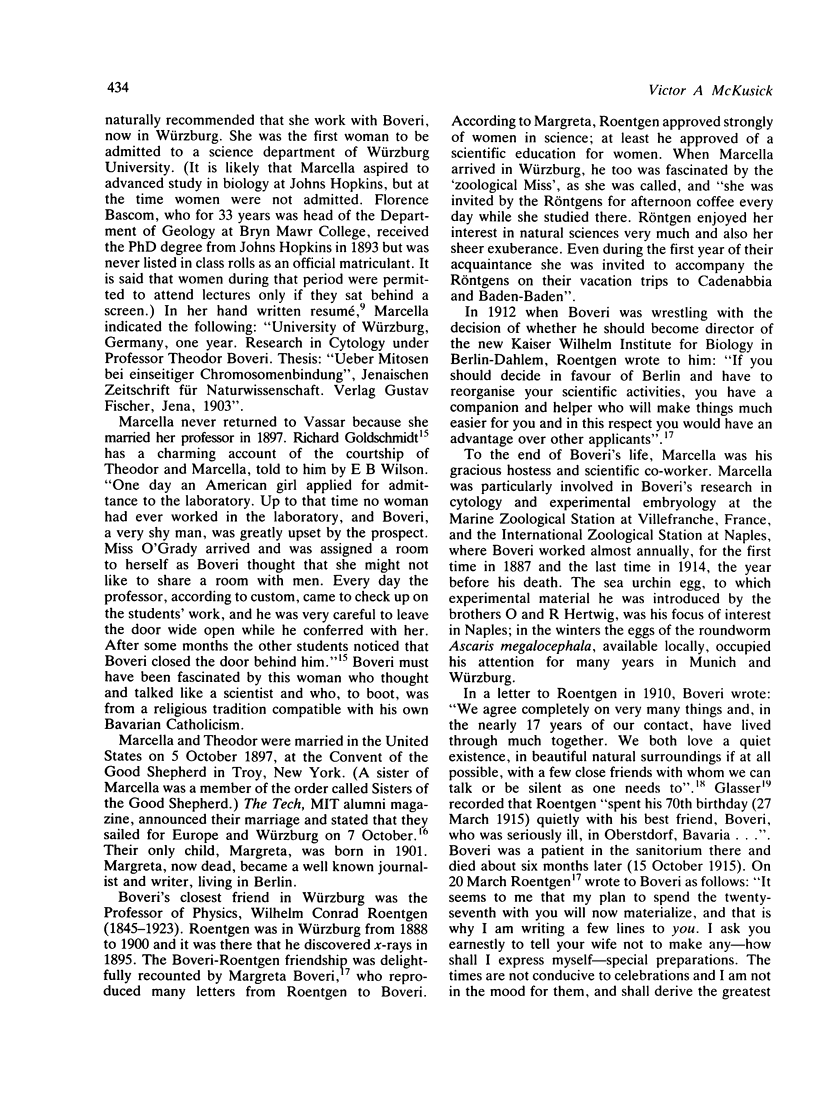
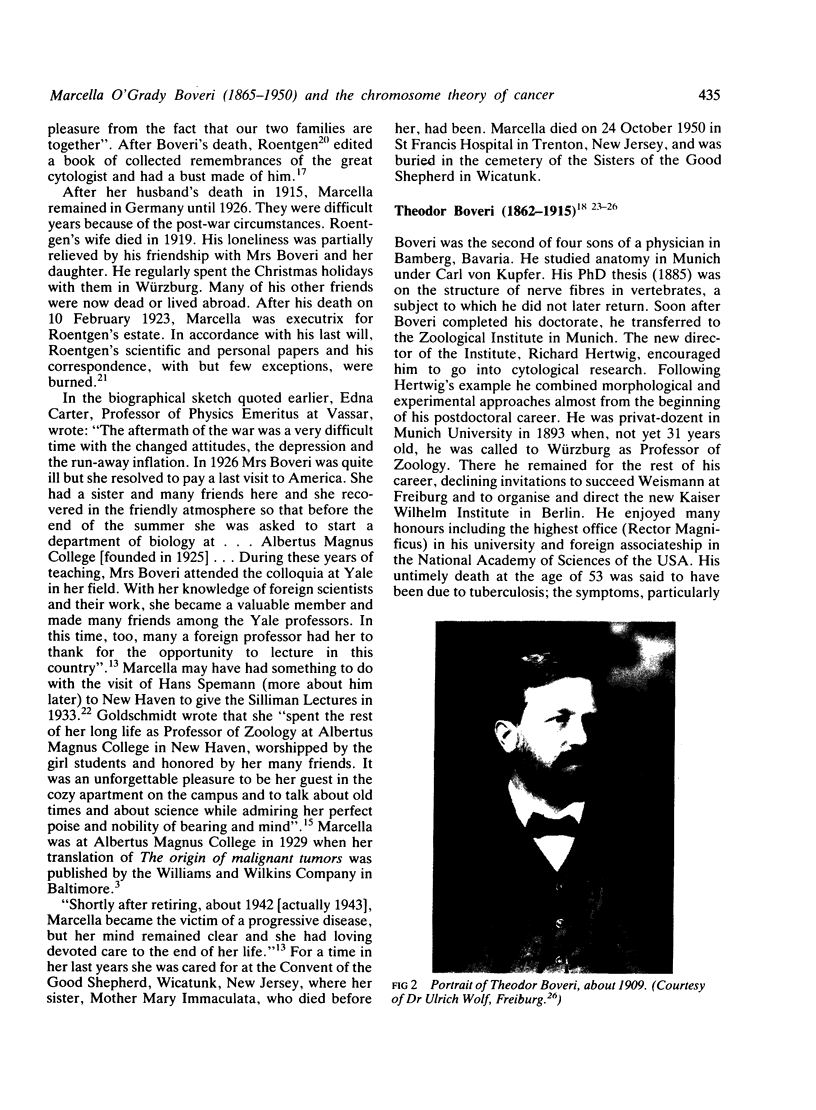
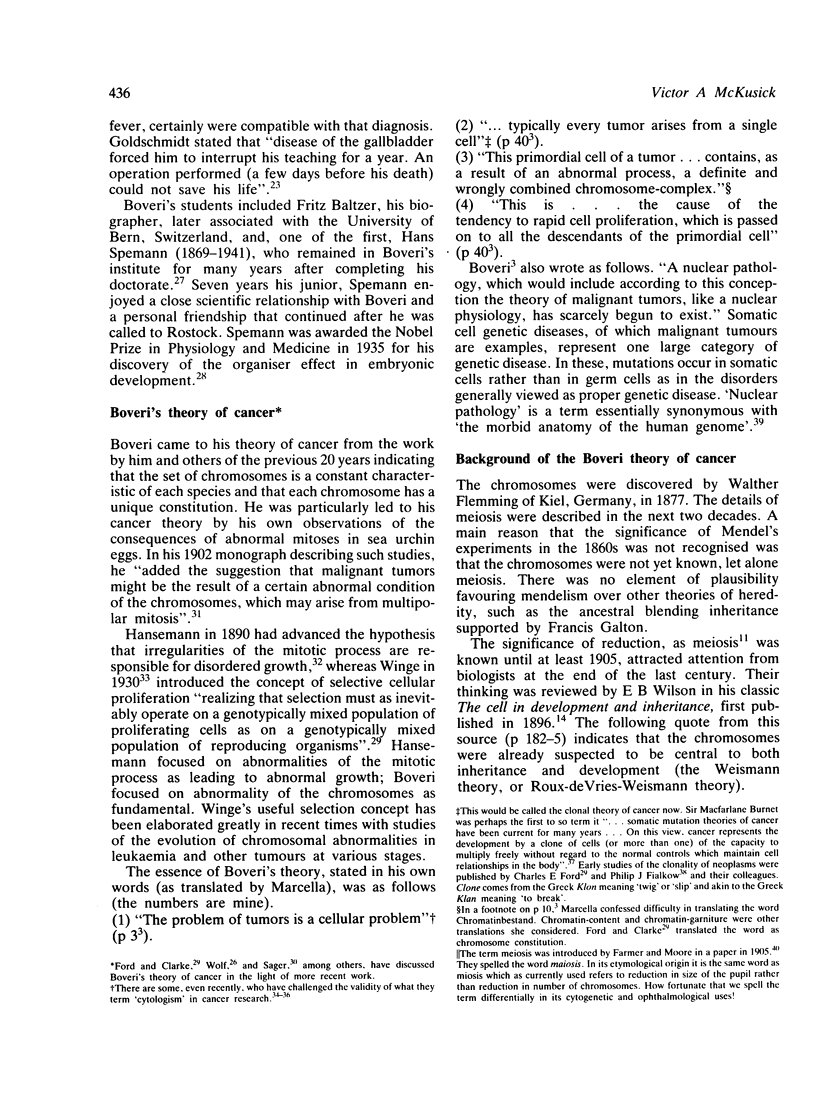
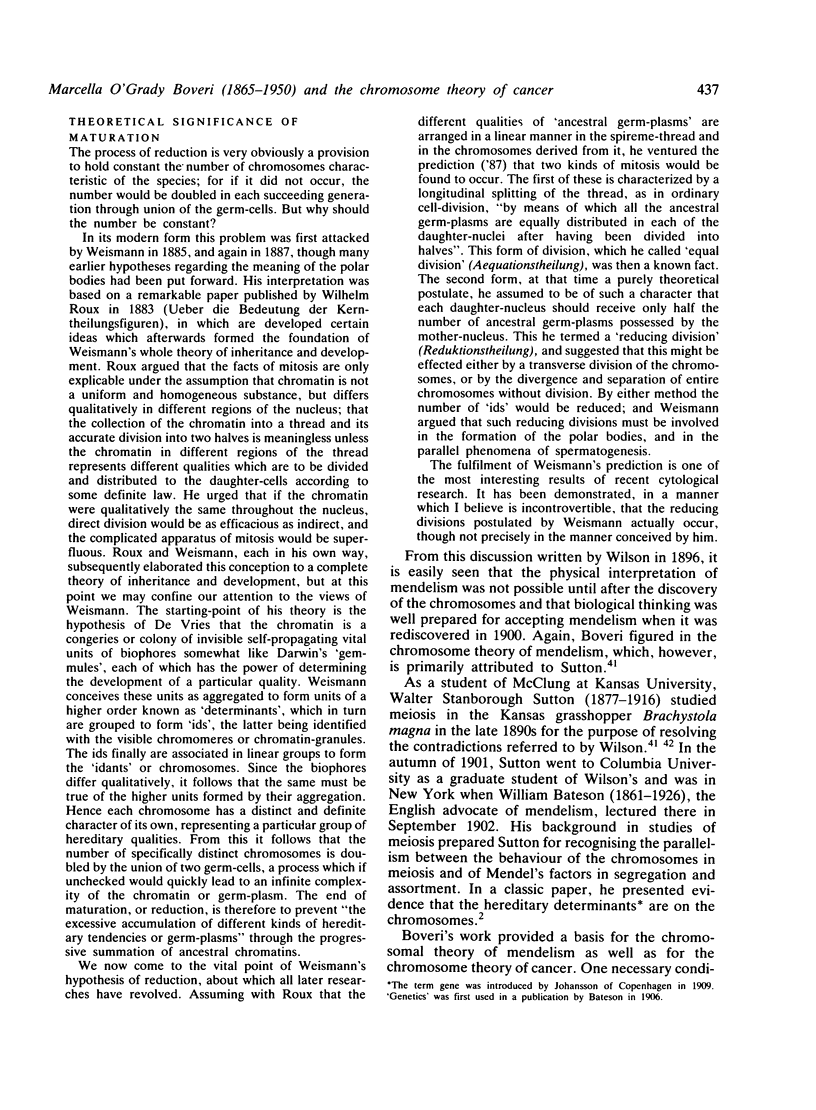
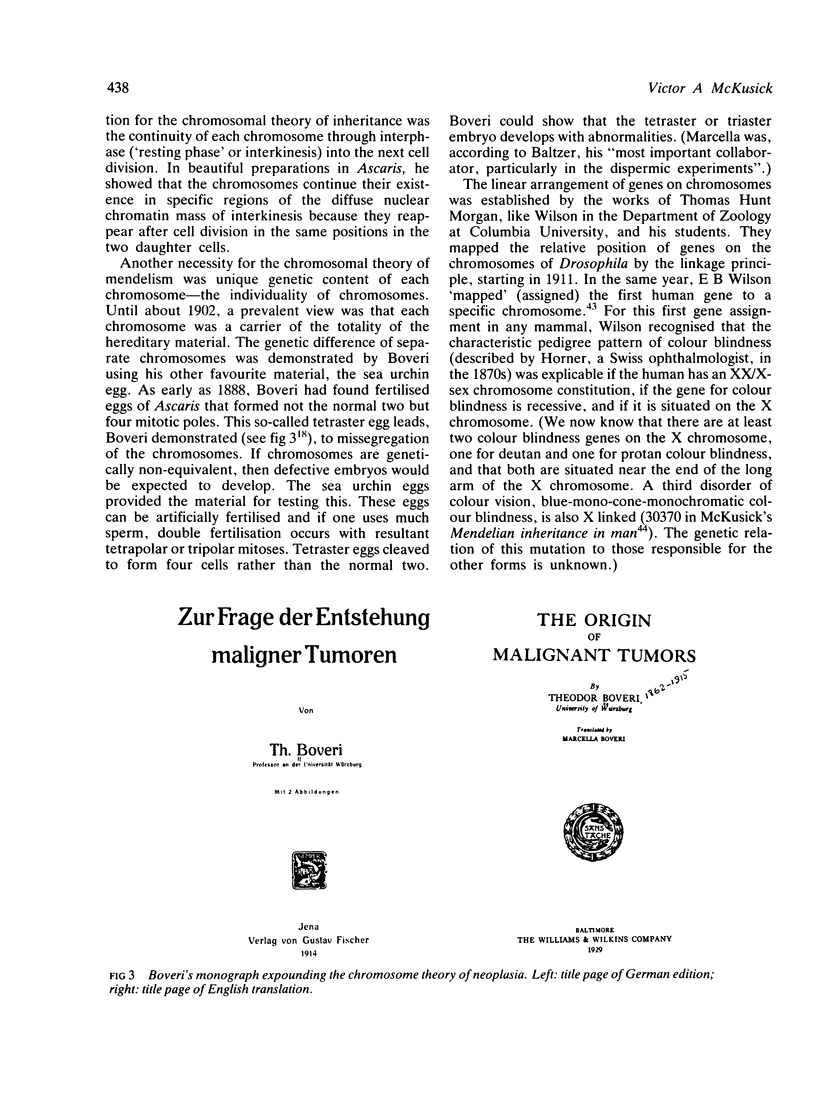
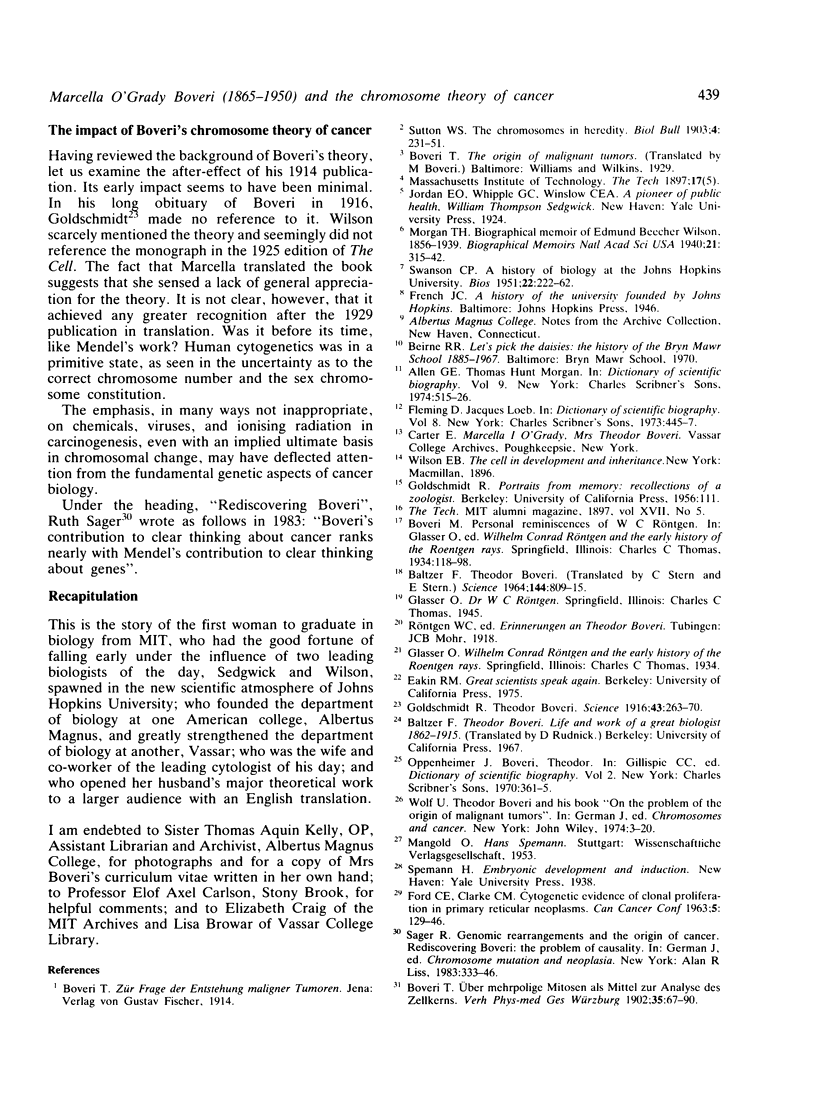
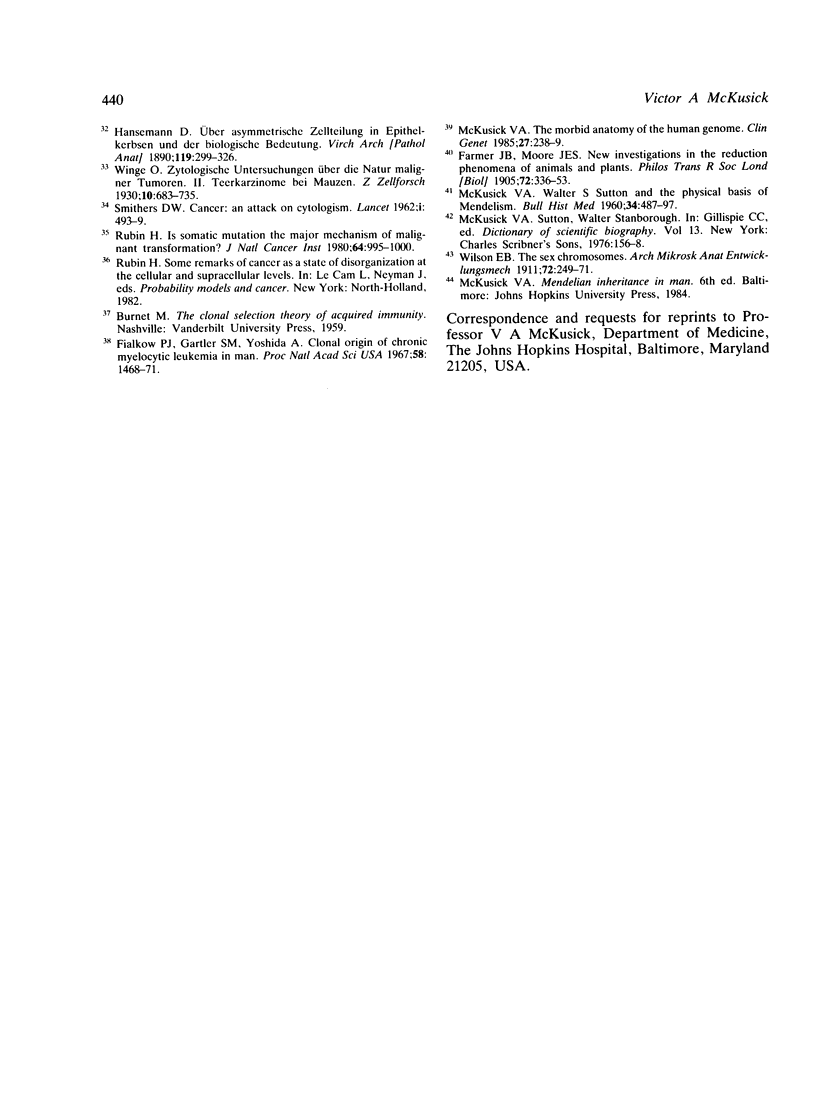
Images in this article
Selected References
These references are in PubMed. This may not be the complete list of references from this article.
- FORD C. E., CLARKE C. M. CYTOGENETIC EVIDENCE OF CLONAL PROLIFERATION IN PRIMARY RETICULAR NEOPLASMS. Proc Can Cancer Conf. 1963;5:129–146. [PubMed] [Google Scholar]
- Fialkow P. J., Gartler S. M., Yoshida A. Clonal origin of chronic myelocytic leukemia in man. Proc Natl Acad Sci U S A. 1967 Oct;58(4):1468–1471. doi: 10.1073/pnas.58.4.1468. [DOI] [PMC free article] [PubMed] [Google Scholar]
- Goldschmidt R. THEODOR BOVERI. Science. 1916 Feb 25;43(1104):263–270. doi: 10.1126/science.43.1104.263. [DOI] [PubMed] [Google Scholar]
- Rubin H. Is somatic mutation the major mechanism of malignant transformation? J Natl Cancer Inst. 1980 May;64(5):995–1000. [PubMed] [Google Scholar]
- SMITHERS D. W. An attack on cytologism. Lancet. 1962 Mar 10;1(7228):493–499. doi: 10.1016/s0140-6736(62)91475-7. [DOI] [PubMed] [Google Scholar]



